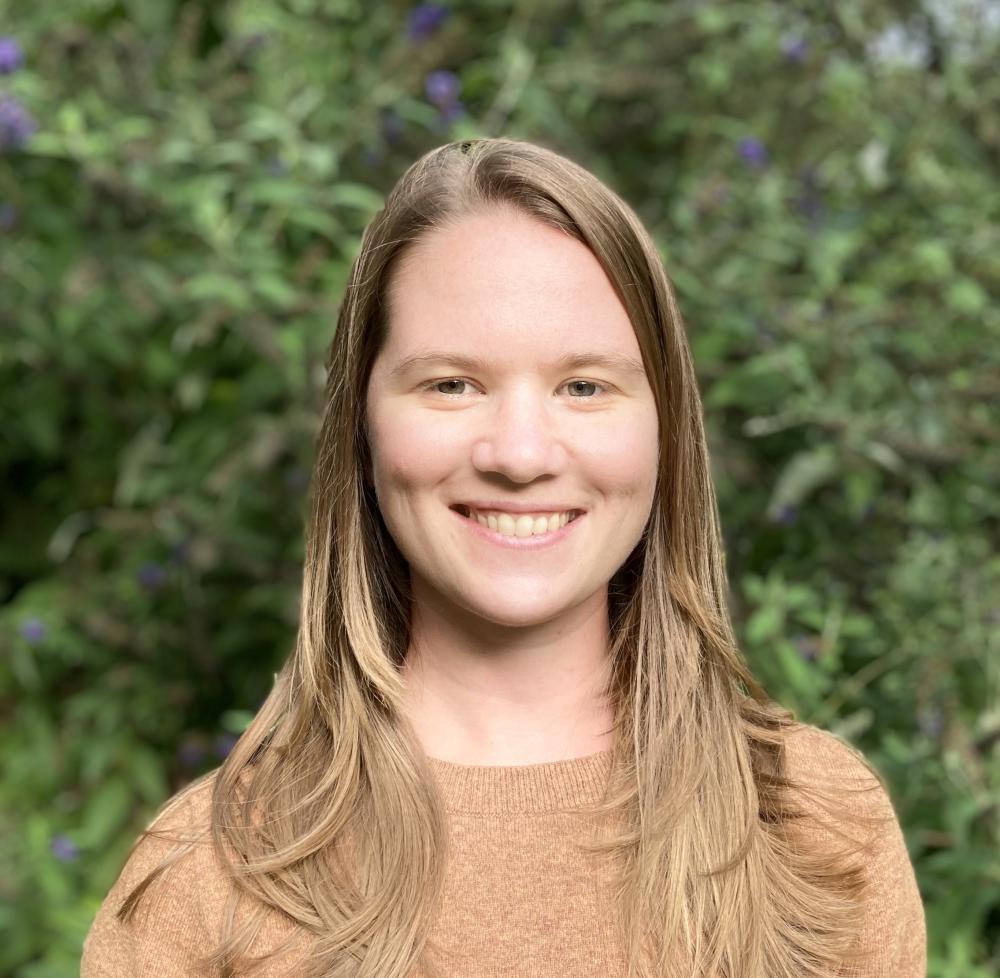Kendall Harris
Kendall Harris, MLA-EP
Associate Environmental Scientist
Resilient Landscapes Program
Carbon, Ecosystems & Climate
Delta Science & Management
Historical Ecology
Kendall Harris joined SFEI’s Resilient Landscapes program as an Associate Environmental Scientist in 2021. She enjoys using GIS and remote sensing tools to advance current knowledge of wetland ecosystems, landscape ecology, and climate change. She earned her Master of Landscape Architecture with a focus in Environmental Planning from UC Berkeley where she used remote sensing tools to study restoration impacts to wetland ecosystems within the Louisiana Delta. Prior to graduate school, Kendall worked as a field ecologist with the National Ecological Observatory Network (NEON) in Tucson and as a field technician for the Forest Service at Lake Tahoe. Her interest in wetlands began with a two-year research program with the US Environmental Protection Agency focused on the National Wetland Condition Assessment. Kendall also holds a BS in Biology from Sweet Briar College.
Related Projects, News, and Events
Catalyzed by the extensive damages caused by the Winter 2016-2017 storms and the opportunity to align flood response with major habitat improvement, Preparing for the Storm is an innovative public-private partnership to improve watershed health and resilience in the Alameda Creek watershed.
 Sediment Solutions (Project)
Sediment Solutions (Project)
Sediment Solutions is a timely and innovative project that builds on SFEI’s past work, operationalizing cutting-edge science to inform management approaches that take advantage of natural processes to provide more creek sediment to baylands, increase climate resilience, and enhance creek health. With study areas in North Bay, East Bay, and South Bay, the project will provide new guidance for management strategies that support flood risk management and ecosystem health benefits throughout the region.
 Delta Wetlands and Resilience: Blue Carbon and Marsh Accretion (Project)
Delta Wetlands and Resilience: Blue Carbon and Marsh Accretion (Project)
Restoring wetlands in the Sacramento-San Joaquin Delta (Delta) can mitigate subsidence, sequester carbon, reduce GHG emissions, and provide habitat for wetland dependent species. These benefits–their magnitude, scope, and resilience to future sea level rise–depend on the type and siting of new wetlands; rates of carbon accumulation, GHG emissions, and vertical accretion; and opportunities for wetlands to migrate upslope.
 Suisun Landscapes (Project)
Suisun Landscapes (Project)
The largest brackish marsh on the West Coast, Suisun Marsh is a unique transitional landscape between San Francisco Bay and the Sacramento-San Joaquin Delta. The Marsh supports high ecological diversity and has long been managed for recreational hunting and native species support, yet it is threatened by an uncertain future under climate change. Effective adaptation in Suisun will require coordinated, science-based planning by agencies and private landowners.
 Recently completed “Sycamore Alluvial Woodland Restoration and Enhancement Suitability Study” (News)
Recently completed “Sycamore Alluvial Woodland Restoration and Enhancement Suitability Study” (News)
The “Sycamore Alluvial Woodland Restoration and Enhancement Suitability Study” addresses distribution and regeneration patterns and restoration strategies of sycamore alluvial woodland (SAW) habitat, a unique and relatively rare native vegetation community adapted to California’s intermittent rivers and streams. The report was produced by SFEI and H. T.
 Blue Carbon Science to Support Climate Action (Project)
Blue Carbon Science to Support Climate Action (Project)
Working with other scientists, agency staff, and regional and state-level managers and planners, we are building alignment and capacity for blue carbon quantification through science synthesis, outreach, and mapping.
In partnership with the Delta Stewardship Council, the San Francisco Estuary Institute has developed version 2.0 of the Landscape Scenario Planning Tool, a GIS-based analysis toolkit to evaluate user-designed land use and restoration scenarios for the Sacramento-San Joaquin Delta and Suisun Marsh. This free mapping toolbox brings together ten years of science-based research and peer-reviewed methods for California’s Delta-Suisun region.

